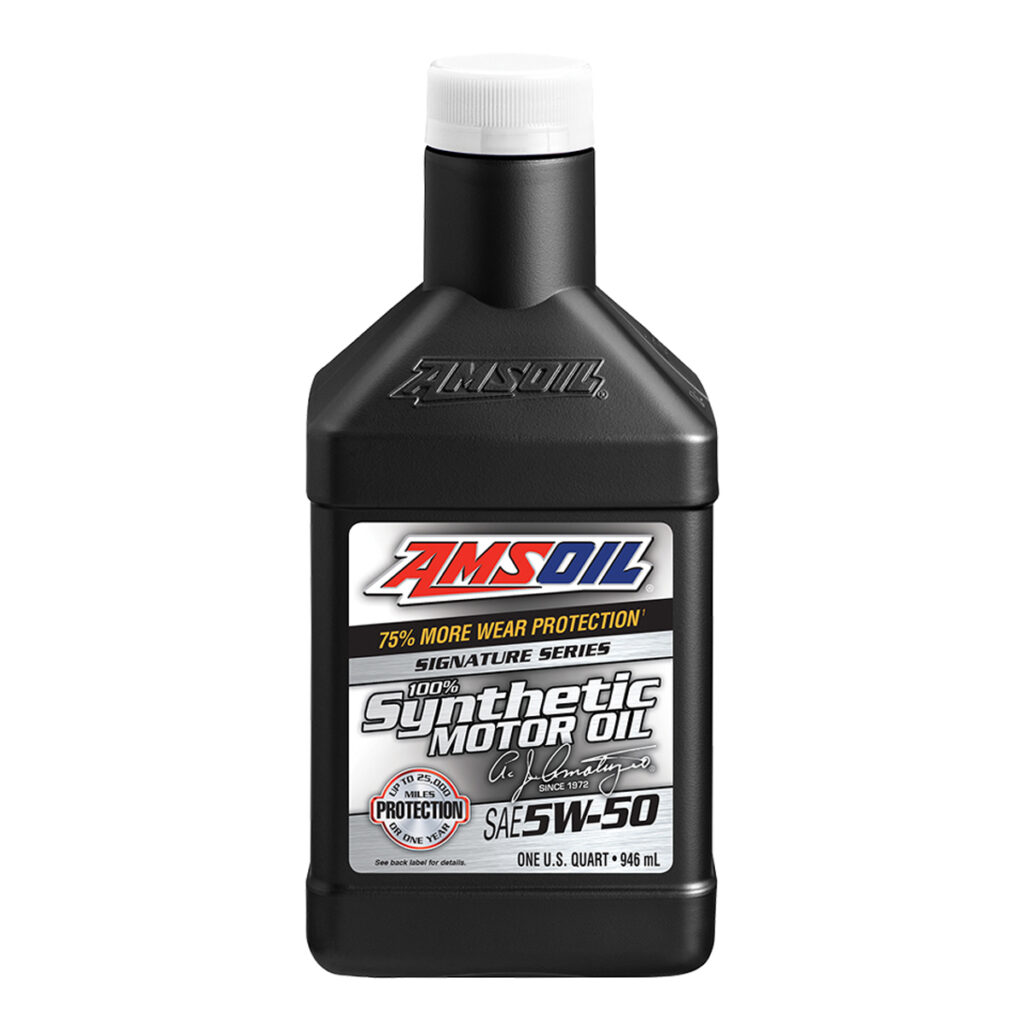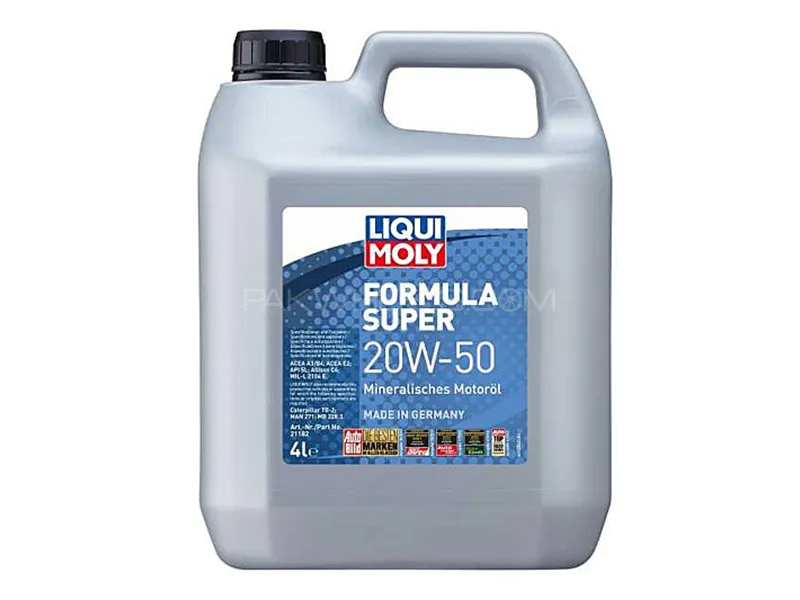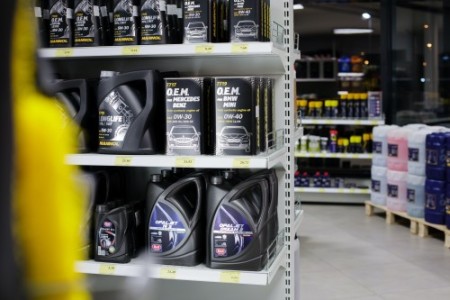Liqui Moly and Amsoil are two well-known brands in the market of motor oil. Both companies offer a wide range of products that cater to different types of engines and driving conditions. However, they have their own set of differences and similarities that make them unique. In this article, we will take a closer look at Liqui Moly and Amsoil, and compare their products and services. This will help you make an informed decision about which brand to choose for your vehicle.
Amsoil Oil:
Amsoil is a synthetic oil company that was founded in 1972 by Albert J. Amatuzio. The company is known for producing high-quality synthetic lubricants that are designed to provide superior performance, protection, and longevity compared to conventional oils.
Amsoil’s products are widely used in the automotive, industrial, and racing industries, and they have gained a reputation for being some of the best synthetic oils on the market. The company uses advanced synthetic technologies and rigorous testing to create products that are designed to meet the needs of demanding applications and provide superior protection against wear, corrosion, and deposits.
Amsoil’s commitment to quality and performance has made it a trusted brand among those who demand the best from their lubricants.

Liqui Moly:
Liqui Moly is a German company that produces a wide range of high-quality lubricants and additives for automobiles. Founded in 1957, the company has grown to become one of the leading providers of engine and transmission oils, brake fluids, and other automotive products.
Liqui Moly products are known for their excellent performance and long-lasting protection, ensuring that vehicles run smoothly and efficiently for many years. With a focus on innovation and sustainability, Liqui Moly continues to lead the way in the development of advanced automotive technologies, making them a trusted brand among drivers and mechanics around the world.

Amsoil Vs Liqui Moly: Which One should be preferred?
If you are a car owner, you have to measure the quality of lubricant for your car. Though both of these oils have ups and downs, they have many dissimilarities that help you choose the right oil for your vehicle.
Oil Viscosity:
both Amsoil and Liqui Moly are reputable brands that offer high-quality motor oils with varying viscosities to meet the needs of different engines and driving conditions. While both brands come with perfect viscosity, you will get more viscosity through Amsoil oil.
Oil Types & grades:
Liqui Moly also offers a range of motor oils, including conventional, synthetic blends, and full synthetic motor oils. However, Amsoil is completely synthetic. They also offer oils specifically designed for high-performance engines and diesel engines.
Both Amsoil and Liqui Moly offer a range of oil grades, including 5W-30, 10W-30, and 15W-40. Amsoil’s synthetic blend oils also come in 5W-20 and 10W-40 grades.
Both Amsoil and Liqui Moly receive positive reviews from customers. You should select one based on your needs and demands.
Temperature Range:
Both Amsoil and Liqui Moly are high-quality motor oils that offer excellent protection and performance in different temperature ranges. However, when comparing the two, Amsoil is known to perform better in extreme temperatures, both hot and cold. This is due to its advanced synthetic formula, which is specifically designed to handle these extreme conditions.
Oil Efficiency:
Amsoil is known for its extended drain intervals and is recommended for high-performance and demanding applications. It has high viscosity stability and provides better wear protection, which in turn helps increase engine life.
Liqui Moly, on the other hand, is known for its ability to clean and protect the engine, which in turn helps improve efficiency. It is also recommended for high-performance applications and has been known to increase fuel efficiency.
However, if it was me, I would prefer Amsoil oil.

Product Comparison: Amsoil vs. Liqui Moly:
| Product Category | Amsoil | Liqui Moly |
| Motor Oil | 100% pure synthetic | High-quality synthetic and conventional |
| Additives | Contains anti-wear additives and detergents | Contains anti-wear additives, detergents, and anti-corrosion agents |
| Performance | Outstanding engine protection and performance | Excellent engine protection and performance |
| Longevity | Extended oil change intervals compared to conventional oils | Can extend oil change intervals compared to conventional oils |
| Temperature Range | Effective in extreme temperatures | Effective in extreme temperatures |
| Cost | Higher cost compared to conventional oils | Higher cost compared to conventional oils |
Pros & Cons of Liqui Moly & Amsoil:
Like every product, these two also have pros and cons. They will help you in your decision effectively.
Pros of Liqui Moly:
- Offers excellent protection and performance for high-performance engines.
- Provides a high level of wear protection and reduces engine deposits.
- Good for cold weather starting and low-temperature fluidity.
- Recommended for diesel engines and for use in extreme temperatures.
Cons of Liqui Moly:
- May be more expensive compared to other oils on the market.
- May not be widely available in all regions.
Pros of Amsoil:
- Offers excellent protection for high-performance engines.
- Long-lasting and reduces the need for frequent oil changes.
- Provides a high level of wear protection and reduces engine deposits.
- Recommended for diesel engines and for use in extreme temperatures.
Cons of Amsoil:
- May be more expensive compared to other oils on the market.
- Some customers have reported compatibility issues with older vehicles.
Frequently Asked Questions (FAQs):
Is Liqui Moly Oil Better Than Amsoil?
Liqui Moly offers a wide range of high-quality motor oils and automotive chemicals, while Amsoil specializes in synthetic lubricants. Both companies have a strong reputation for producing high-quality products that provide excellent engine protection and performance. Both Liqui Moly and Amsoil are reputable companies that produce high-quality motor oils but Amsoil protects the engine more.
What is so good about LIQUI MOLY?
LIQUI MOLY oil is made from high-quality raw materials and is tested rigorously to ensure that it meets strict industry standards. It is known for providing excellent performance and protection for engines, transmissions, and other parts. It is compatible with a wide range of vehicles, including diesel, gasoline, and hybrid engines, making it a versatile choice for many drivers. Moreover, it has a long-lasting formula that provides protection for a long time, helping to extend the life of engines and other parts. It is formulated with the latest in lubricant technology, offering drivers and their vehicles top-notch protection and performance. It also has a strong reputation for customer satisfaction, with many drivers reporting positive results from using the product.
Is Mobil 1 Better Than AMSOIL?
Mobil 1 is designed to provide excellent protection and performance in a wide range of vehicles and driving conditions. AMSOIL, on the other hand, is known for its advanced synthetic technology and extended drain intervals. It is formulated to provide superior protection and performance in extreme conditions and high-performance engines. If you are looking for more power, Amsoil is the one for you.
Conclusion:
Both Liqui Moly and Amsoil are well-regarded in the industry and have a strong reputation for producing high-quality products. However, the choice between the two will largely depend on personal preference and the specific needs of the vehicle or equipment. For example, if you are looking for a more environmentally friendly option, Amsoil may be a better choice as it produces synthetic oils that are designed to reduce emissions. On the other hand, if you are looking for a more comprehensive range of products, Liqui Moly may be a better choice as it offers a wider range of lubricants and other automotive products. The similarities and differences between both brilliant products are explained extensively above.

